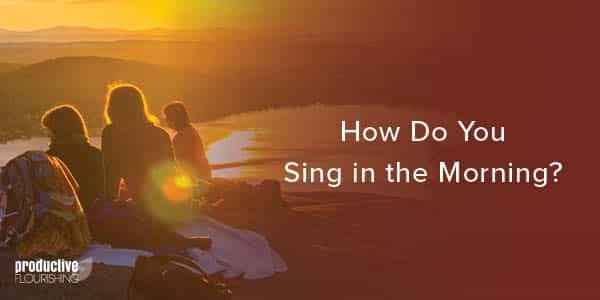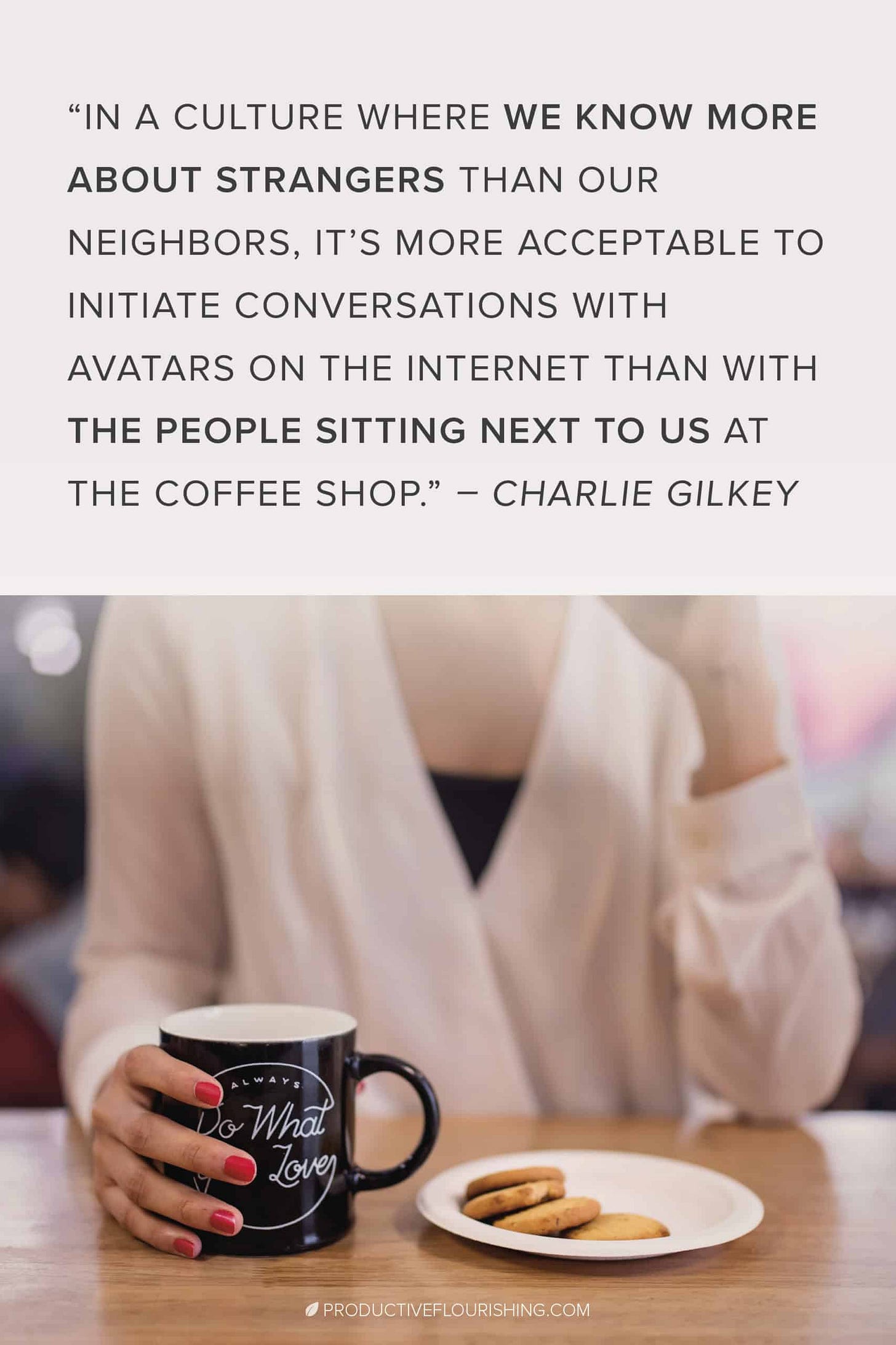How Do You Sing in the Morning?

I was listening to the audiobook version of Mark Nepo's More Together Than Alone the other day. The following passage struck me:
In an elemental way, empathy and connection are life-giving. Let’s consider how birds sing at the sign of first light. By itself this is remarkable, that light causes birds to sing. This is also how birds re-map their web of relationship each morning. Like a form of natural radar, their songs bounce off each other and a new geography of birds is established — or re-established — for the day. Their maps and sense of territory stay current. They begin freshly with each appearance of dawn and co-exist by singing their song and acknowledging each other’s song. By voicing and receiving their individual songs, birds relocate each other every morning.
The passage took me back to the summers I lived side-by-side with other Scouts and soldiers. The mornings were filled with the songs of the community re-bonding and re-forming for the work of the day. Sure, those songs may have been greetings, laughter, heckling, grumbling, farting, burping, and groaning, but they were the sounds of a community rebuilding itself every morning.
The community also voiced the presence of its individuals with morning formations or stand-ups. The formal roll call and informal greetings ensured everyone was counted, and everyone counted. Even the least popular member of the communities knew that should they go missing, get hurt, or come under attack, the entire community would rally to find, help, or defend them. We didn't have to say we were there for each other; it was deeply understood and reinforced every morning.
Our Natural State Is Connectedness
Mark's passage also reminded me of many conversations I’ve had with people when they ask about my military experience. It’s such a foreign experience for some people, and their questions often hinge on the combat aspect of the military. How does one get their mind wrapped around being in an organization where there’s a strong likelihood of having to kill or being killed?
But once I explain that military service is often more about living and being with other people, the choice to join the military starts to make more sense. Even when service members hate the bureaucracy and bullshit of the military, they know there are few other places where you can experience living in that tight-knit of a community.
Civilian life is much more isolated and disjointed, as we normally just work with our coworkers. Even when we become friends with our coworkers, they're friends-at-work. They go home and live separate lives with other friends.
The type of community living I describe seems unusual for many of us, but when you look at history, living in community is actually much closer to what's natural for us. Even isolated farmers had practices that mirrored the ones found with my unit, typically attending church and civic functions.
Much of the last 300 years of social, political, and philosophical tension has been around formalizing ways to be counted and protected while society and technology push us closer together physically but further apart socially.
Cultivating Community through Social Media
My contemplation of Mark's passage caused me to reflect on my past — as well as my present. I’ve started to see how social media might be a way we sing to each other in the morning. The paradox, of course, is that few people wake up excited to see what's on social media or plan to jump on it first thing, but it's often one of the first things they do when they get up in the morning.
Yes, getting on social media could be a bad habit, but maybe it's deeper than that.
Maybe our need to check social media comes from our deep human need to hear other people’s songs and to sing our own.
In a culture where we know more about strangers than our neighbors, it's more acceptable to initiate conversations with avatars than with the people sitting next to us at the coffee shop. (Tweet this.)
And, since many of us watch or listen to spiritual teachers on devices rather than in real-time with other humans, many of us don't have a place where we’re seen, counted, and woven into the fold.
My heart softens toward social media when I consider that it may be a way we sing, listen, and respond.
The "first thing in the morning social media crawl” has exasperated me personally and professionally. But when I view social media as a way to have community, I’ve found many of my personal and coaching interventions work better.
Instead of telling people (or myself) to get off social media, I advise they replace social media time with connective time. That "connective time" could be as simple as going to a coffee shop and interacting with other humans, calling a friend, or spending more time with the two- and four-legged beings who are also seeking to sing and respond.
When they do that, social media loses some of its allure because they’re finding real community.
How to Create More Connective Time
If you need more connection and community in your life this year, start by asking three questions:
How are you currently singing, hearing, and responding to the beings in your life?
If social media first thing in the morning isn't serving you well — and it's based on your need to see and be seen — what is one thing you could do that would serve that same purpose and serve you better?
If you don't have sufficient connection time with other beings, what could you do to create connection points? Consider activities where you're doing or building something with other people, or activities that foster intimacy and trust.
Everyone counts. Sometimes we just need to be counted to be reminded of that.
PS: If a book could be a background track, Digital Minimalism is the background track to this post. Cal beat me to the punch again with a book on the subject.
PPS: I discussed some of the gems from More Together Than Alone with Mark on the podcast.







